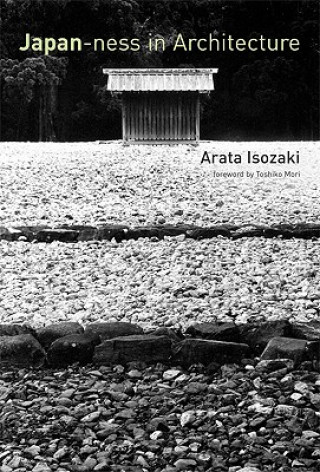
Kód: 04365372
Japan-ness in Architecture
Autor Arata Isozaki
Japanese architect Arata Isozaki sees buildings not as dead objects but as events that encompass the social and historical context -- not to be defined forever by their "everlasting materiality" but as texts to be interpreted and ... celý popis
- Jazyk:
 Angličtina
Angličtina - Väzba: Brožovaná
- Počet strán: 376
Nakladateľ: MIT Press Ltd, 2011
- Viac informácií o knihe

27.34 €
Bežne: 35.05 €
Ušetríte 7.71 €
Dostupnosť:
50 % šanca Máme informáciu, že by titul mohol byť dostupný. Na základe vašej objednávky sa ho pokúsime do 6 týždňov zabezpečiť.
Máme informáciu, že by titul mohol byť dostupný. Na základe vašej objednávky sa ho pokúsime do 6 týždňov zabezpečiť.Prehľadáme celý svet
Mohlo by sa vám tiež páčiť
-

Araki: Tokyo Lucky Hole
22.41 € -

New Japan Architecture
35.49 € -

tHE Complete Zaha Hadid
32.17 € -23 % -
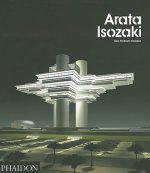
Arata Isozaki
101.85 € -

Japan Style
43.03 € -

Jutaku, Japanese Houses
21.81 € -

Japanese Pottery Handbook
29.75 € -

Lying Numbers
16.28 € -23 % -
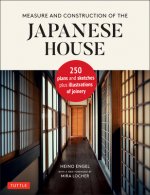
Measure and Construction of the Japanese House
15.27 € -14 % -

Vincent Van Duysen Works 1989-2009
53.39 € -23 % -
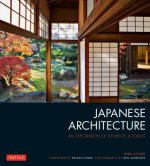
Japanese Architecture
26.03 € -14 % -

Lore Olympus: Volume Three
13.87 € -32 % -

A Game of Retribution
8.94 € -16 % -
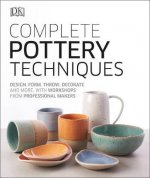
Complete Pottery Techniques
27.44 € -18 % -

Wabi-Sabi Welcome
24.12 € -22 % -

Thinking Architecture
38.80 € -8 % -

Before the Coffee Gets Cold
9.24 € -13 % -

Koolhaas/Obrist. Project Japan. Metabolism Talks
46.75 € -13 % -

Mies van der Rohe
14.97 € -9 % -

Junkspace with Running Room
17.99 € -15 % -

Japan Style
21.91 € -14 % -

The Complete Book of Solitaire and Patience Games
10.75 € -6 % -

Studio Series Roll-Up Canvas Pencil Wrap
15.17 € -5 % -

Healing Architecture
45.34 € -4 % -

2G No. 78: Junya Ishigami
39.31 € -

Unreal Engine 4.x Scripting with C++ Cookbook
45.64 € -

Lego 3 Pack Gel Pens; Red, Black, Blue
10.55 € -

Machinery's Handbook Toolbox
137.75 € -

Hidden Japan: A Fragile Landscape of Thatched Villages, Ancient Shrines and Primeval Forests
12.86 € -30 % -

Conditional Design
13.87 € -
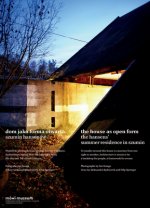
House as Open Form: The Hansens` Summer Resi - Dom jako Forma Otwarta. Szumin Hansenow Szumin Hansenow
34.78 € -

Delirious New York
30.16 € -15 % -

Melancholy and Architecture - On Aldo Rossi
44.34 € -4 % -

Magritte
27.74 € -

John Keats
19.50 € -20 % -

Koolhaas. Countryside. A Report
21.41 € -2 % -

Kenzo Tange: Architecture for the World
54.49 € -

Middle Egyptian
57.11 € -8 % -

The Unabridged Journals of Sylvia Plath
18.39 € -19 % -

Plants and Flowers
30.36 € -13 % -

Case for Community Wealth Building
16.38 € -1 % -

The Architecture of Happiness
12.16 € -23 % -
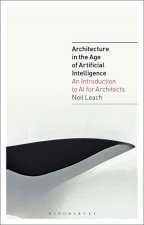
Architecture in the Age of Artificial Intelligence
25.33 € -9 % -

Hi, Jack!
11.15 € -

How the Lion Became the King of the Animals: Story and Activity Book
10.12 € -

Corpse Party: Blood Covered, Vol. 2
17.79 € -14 % -

Concert Halls and Opera Houses
229.86 € -

The Python Bible 7 in 1: Volumes One To Seven
46.45 € -

Sandman Volume 11: Endless Nights 30th Anniversary Edition
16.78 € -20 % -

Creative Haven Fairy Gardens Coloring Book
6.12 € -15 % -

Once Upon a Broken Heart
19.80 € -9 % -

Game Boy: The Box Art Collection
48.26 € -

Electric Idol
12.16 € -20 % -

Art Record Covers. 40th Ed.
25.23 € -

Frieren: Beyond Journey's End, Vol. 2
11.15 € -14 % -

Book Lovers
11.45 € -3 % -

Japan: Its Architecture, Art, and Art Manufactures
31.97 € -

Machine Hallucinations: Architecture & Artificial Intelligence
43.33 € -2 % -

Interaction of Color
19.60 € -5 % -

Ten Types of Innovation - The Discipline of Building Breakthroughs
30.16 € -15 % -

Grimalkin's Curious Cats Tarot
30.66 € -

Avatar: The Last Airbender: The Promise Library Edition
41.42 € -

In His Own Write & A Spaniard in the Works
16.28 € -23 % -
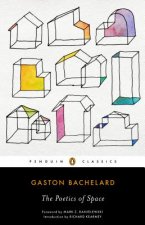
Poetics of Space
14.17 € -23 % -

Victorian Women, Unwed Mothers and the London Foundling Hospital
70.08 € -

Bauhaus
13.87 € -8 % -

Fingerprints of the Gods
23.32 € -9 % -

Celestial Journal
13.36 € -4 % -

It's a Don's Life
13.56 € -13 % -

Blue Zones
7.83 € -14 % -

Nana, Vol. 21
11.15 € -14 % -

Soviet Daughter
15.98 € -

JoJo's Bizarre Adventure: Part 3 - Stardust Crusaders, Vol. 3
18.19 € -19 % -

Japanese from Zero! 2
42.32 € -

Manga in Theory and Practice
17.29 € -23 % -

1984
27.94 € -

Atlas of Animal Anatomy for Artists
20.81 € -

Non-Referential Architecture
22.41 € -9 % -

Art of Japanese Architecture
21.91 € -14 % -

Neural Networks for Babies
10.55 € -

Natural Living Style
20.30 € -20 % -

School World Order
20.81 € -

Calatrava. Complete Works 1979-Today
58.01 € -1 % -

Java Concurrency in Practice
63.54 € -

Fraternitas Saturni
16.88 € -15 % -

A Diplomat In Japan
18.10 € -

Faber-Castell Stifterolle leer
24.53 € -

Blanche-Neige
23.32 € -

Mia and me Armband L+S
14.77 € -

Pan Tadeusz
3.61 € -18 % -

Najbogatszy człowiek w Babilonie
9.84 € -14 %
Darčekový poukaz: Radosť zaručená
- Darujte poukaz v ľubovoľnej hodnote, a my sa postaráme o zvyšok.
- Poukaz sa vzťahuje na všetky produkty v našej ponuke.
- Elektronický poukaz si vytlačíte z e-mailu a môžete ho ihneď darovať.
- Platnosť poukazu je 12 mesiacov od dátumu vystavenia.
Informovať o naskladnení knihy
Zadajte do formulára e-mailovú adresu a akonáhle knihu naskladníme, zašleme vám o tom správu. Postrážime všetko za vás.
Viac informácií o knihe Japan-ness in Architecture
Nákupom získate 69 bodov
 Anotácia knihy
Anotácia knihy
Japanese architect Arata Isozaki sees buildings not as dead objects but as events that encompass the social and historical context -- not to be defined forever by their "everlasting materiality" but as texts to be interpreted and reread continually. In Japan-ness in Architecture, he identifies what is essentially Japanese in architecture from the seventh to the twentieth century. In the opening essay, Isozaki analyzes the struggles of modern Japanese architects, including himself, to create something uniquely Japanese out of modernity. He then circles back in history to find what he calls Japan-ness in the seventh-century Ise shrine, reconstruction of the twelfth-century Todai-ji Temple, and the seventeenth-century Katsura Imperial Villa. He finds the periodic ritual relocation of Ise's precincts a counter to the West's concept of architectural permanence, and the repetition of the ritual an alternative to modernity's anxious quest for origins. He traces the "constructive power" of the Todai-ji Temple to the vision of the director of its reconstruction, the monk Chogen, whose imaginative power he sees as corresponding to the revolutionary turmoil of the times. The Katsura Imperial Villa, with its chimerical spaces, achieved its own Japan-ness as it reinvented the traditional shoin style. And yet, writes Isozaki, what others consider to be the Japanese aesthetic is often the opposite of that essential Japan-ness born in moments of historic self-definition; the purified stylization -- what Isozaki calls "Japanesquization" -- lacks the energy of cultural transformation and reflects an island retrenchment in response to the pressure of other cultures.Combining historical survey, critical analysis, theoretical reflection, and autobiographical account, these essays, written over a period of twenty years, demonstrate Isozaki's standing as one of the world's leading architects and preeminent architectural thinkers.
 Parametre knihy
Parametre knihy
Zaradenie knihy Knihy po anglicky The arts Architecture Theory of architecture
27.34 €
- Celý názov: Japan-ness in Architecture
- Autor: Arata Isozaki
- Jazyk:
 Angličtina
Angličtina - Väzba: Brožovaná
- Počet strán: 376
- EAN: 9780262516051
- ISBN: 0262516055
- ID: 04365372
- Nakladateľ: MIT Press Ltd
- Hmotnosť: 710 g
- Rozmery: 228 × 153 × 18 mm
- Dátum vydania: 25. February 2011
Obľúbené z iného súdka
-

Herman Hertzberger - Lessons for Students in Architecture
38.50 € -14 % -
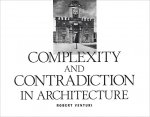
Complexity and Contradiction in Architecture
25.93 € -15 % -

Architecture for Kids
22.41 € -

Sports Facilities
63.84 € -10 % -
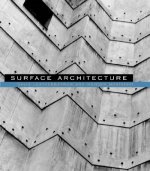
Surface Architecture
43.33 € -
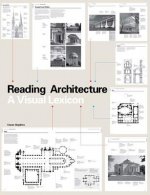
Reading Architecture
19.80 € -
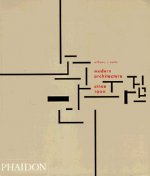
Modern Architecture Since 1900
55.40 € -

Eyes of the Skin - Architecture and the Senses 3e
35.99 € -

Oxford Dictionary of Architecture
25.23 € -

Extrastatecraft
13.36 € -15 % -

Design Process in Architecture
30.86 € -11 % -

Principles of Roman Architecture
52.08 € -
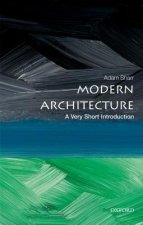
Modern Architecture: A Very Short Introduction
9.95 € -22 % -

Introduction to Architectural Theory - 1968 to the Present
62.23 € -

Paris Haussmann
51.47 € -
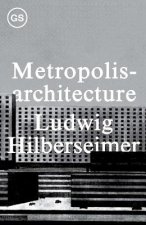
Metropolisarchitecture
21.81 € -15 % -
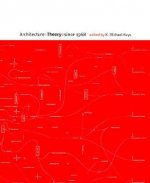
Architecture Theory since 1968
81.54 € -

Kahn at Penn
78.52 € -
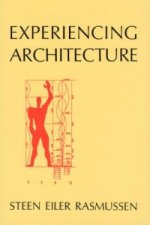
Experiencing Architecture
40.51 € -12 % -
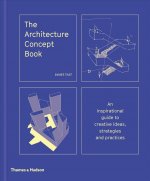
Architecture Concept Book
43.03 € -
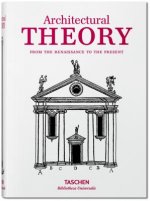
Architectural Theory. Pioneering Texts on Architecture from the Renaissance to Today
27.64 € -
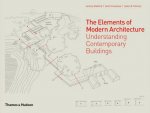
Elements of Modern Architecture
42.83 € -
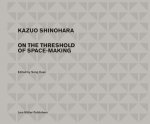
Kazuo Shinohara
39.81 € -9 % -

Aesthetics of Architecture
37.80 € -

Dynamics of Architectural Form, 30th Anniversary Edition
42.63 € -

Artist's Eye
17.39 € -

Architecture of Nature
42.73 € -14 % -
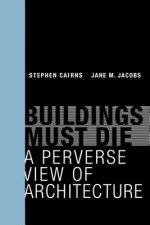
Buildings Must Die
33.58 € -

Architectural Composition
77.92 € -5 % -

Architecture Depends
25.13 € -22 % -

Knowledge Matters
30.36 € -13 % -

Social Logic of Space
58.01 € -
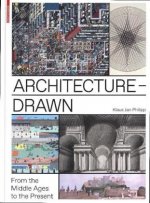
Architecture - Drawn
97.53 € -
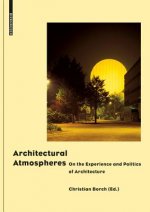
Architectural Atmospheres
28.35 € -10 % -

International Space Station
85.86 € -4 % -

Design Thinking
48.56 € -

Architectural Theory - An Anthology from Vitruvius to 1870 V 1
104.27 € -
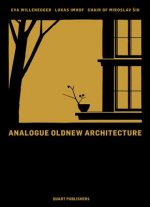
Analogue Oldnew Architecture
128.50 € -5 % -

Architecture
15.68 € -14 % -

Louis Kahn
30.96 € -
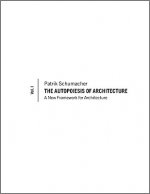
Autopoiesis of Architecture - A New Framework for Architecture V1
48.16 € -16 % -

Herman Hertzberger
46.55 € -2 % -

UnderstandingUnderstanding
74.20 € -5 % -
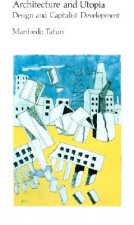
Architecture and Utopia
56.50 € -
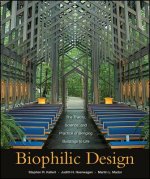
Biophilic Design - The Theory, Science, and Practice of Bringing Buildings to Life
99.34 € -4 % -
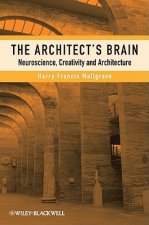
Architect's Brain - Neuroscience, Creativity and Architecture
43.33 € -

Oxford Dictionary of Architecture
77.82 € -
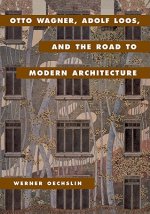
Otto Wagner, Adolf Loos, and the Road to Modern Architecture
129.51 € -

Modern Architecture in Czechoslovakia and Other Writings
67.36 € -10 %
Osobný odber Bratislava a 2642 dalších
Copyright ©2008-24 najlacnejsie-knihy.sk Všetky práva vyhradenéSúkromieCookies


 21 miliónov titulov
21 miliónov titulov Vrátenie do mesiaca
Vrátenie do mesiaca 02/210 210 99 (8-15.30h)
02/210 210 99 (8-15.30h)